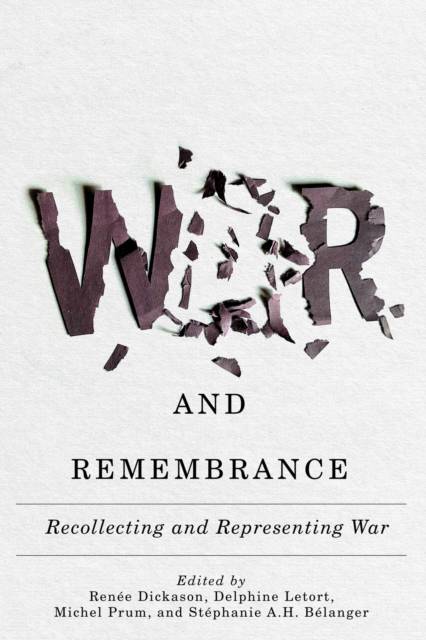
- Afhalen na 1 uur in een winkel met voorraad
- Gratis thuislevering in België vanaf € 30
- Ruim aanbod met 7 miljoen producten
- Afhalen na 1 uur in een winkel met voorraad
- Gratis thuislevering in België vanaf € 30
- Ruim aanbod met 7 miljoen producten
Zoeken
War and Remembrance
Recollecting and Representing War Volume 18
€ 156,45
+ 312 punten
Omschrijving
Memory, while seemingly a thing of the past, has much to reveal in the present. With its focus on memory, War and Remembrance provides new viewpoints in the field of war representation.Bringing an interdisciplinary approach to discussions of the cultural memory of war, the collection focuses on narratives, either fictional or testimonial, that challenge ideological discourses of war. The acts of remembrance and of waging war are constantly evolving. A range of case studies - analyzing representations of war in art, film, museums, and literature from Nigeria, Australia, Sri Lanka, Canada, and beyond - questions our current approaches to memory studies while offering reinterpretations of established narratives. Throughout, a commitment to Indigenous perspectives, to examining the ongoing legacy of colonialism, and to a continued reckoning with the Second World War foregrounds what is often forgotten in the writing of a single, official history.War and Remembrance invites readers to cast a reflexive look at wars and conflicts past - some of them forgotten, others still vividly commemorated - the better to understand the cultural, political, and social stake of memory as a source of conflict and exchange, of resistance and opposition, and of negotiation and reconciliation.
Specificaties
Betrokkenen
- Uitgeverij:
Inhoud
- Aantal bladzijden:
- 536
- Taal:
- Engels
- Reeks:
Eigenschappen
- Productcode (EAN):
- 9780228010685
- Verschijningsdatum:
- 15/06/2022
- Uitvoering:
- Hardcover
- Formaat:
- Genaaid
- Afmetingen:
- 152 mm x 229 mm

Alleen bij Standaard Boekhandel
+ 312 punten op je klantenkaart van Standaard Boekhandel
Beoordelingen
We publiceren alleen reviews die voldoen aan de voorwaarden voor reviews. Bekijk onze voorwaarden voor reviews.







